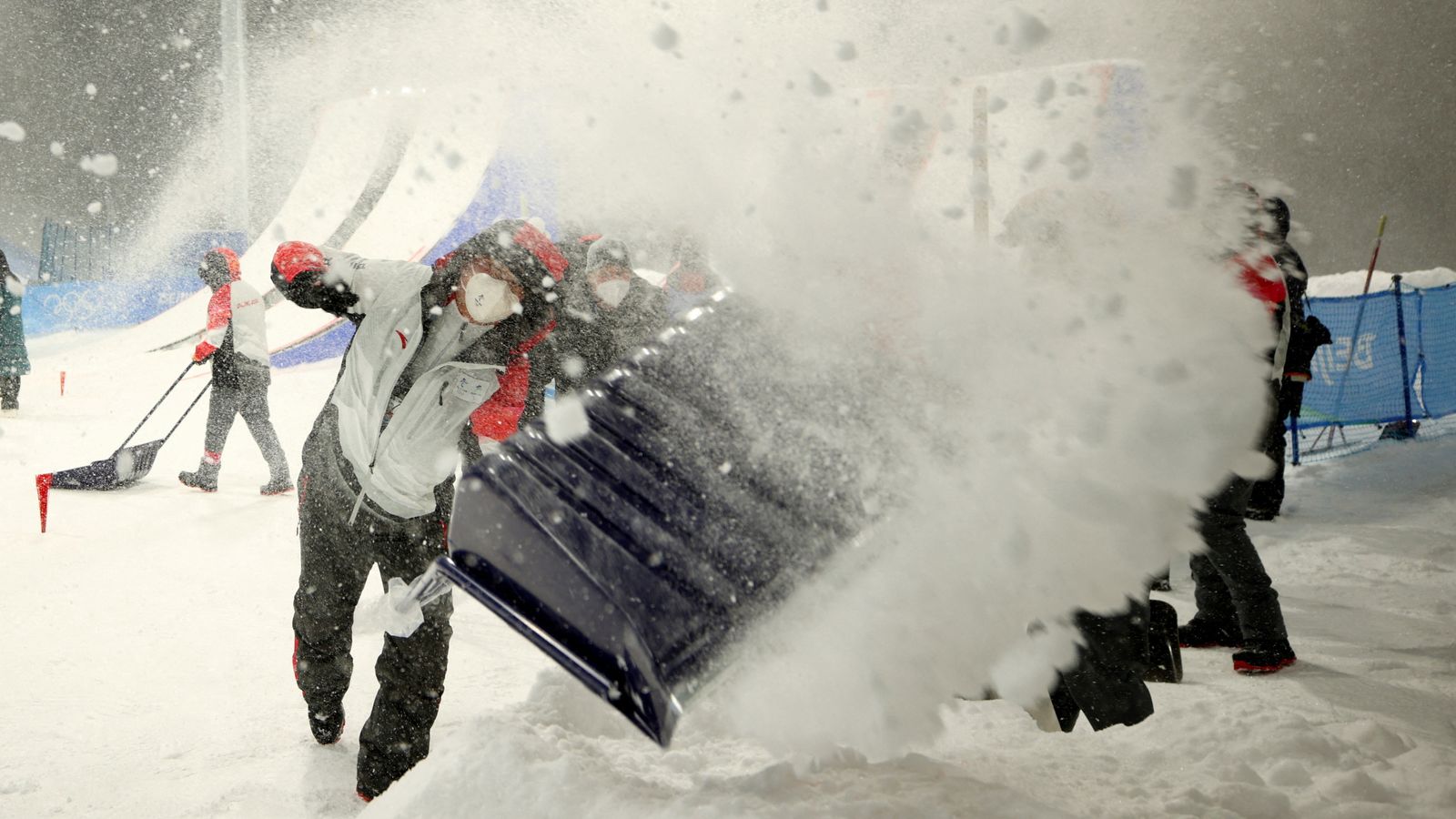A number of events at the Winter Olympics in Beijing have been disrupted after actual snow fell on the Chinese capital.
Beijing is an arid region with less annual snowfall than London.
As a result, the plan was for all the snow used at the Games to be entirely artificial, leading experts to question organisers’ green credentials.
Please use Chrome browser for a more accessible video player
Organisers used about 2.5 million cubic litres of water to create the snow, relying on more than 100 snow generators and 300 snow cannons working flat-out to cover the ski slopes.
Read more: Future of Winter Olympics and snow sports on thin ice, report warns
But heavy snow came down on Beijing on Sunday, affecting a number of events.
The second run of the two-leg giant slalom was postponed by one hour and 15 minutes while workers cleared snow from the course with blowers and shovels.
Beijing Winter Olympics: Team GB bobsleigh stars on the challenges of training – and coffee
Winter Olympics opening ceremony in pictures – as skier from Uyghur community lights flame
Winter Olympics athlete moved from COVID isolation facility after tearful plea for help
Switzerland’s Marco Odermatt held his nerve to win his first Olympic gold in the skiing event.
The snow has also seen the cancellation of a second women’s downhill training run scheduled for Sunday.
In the men’s cross-country relay ski race, workers had to use leaf blowers to clear snow off the tracks as the event was happening, with the conditions slowing the competitors down.
Subscribe to ClimateCast on Spotify, Apple Podcasts, or Spreaker.
As they did in the women’s race, the Russian Olympic Committee team opened up a lead and held on to clinch gold in the 10km relay.
The winning time in the four-man relay at the 2018 Winter Olympics, in Pyeongchang, South Korea, was more than 20 minutes quicker.
China’s freestyle skier Eileen Gu has to wait a day longer to try and win her second gold of the Games, after high winds and snow postponed the qualifying round of the women’s slopestyle.
Qualifying has been delayed until Monday, with the final now on Tuesday.
The change avoids the gold-medal round coming up directly against the Super Bowl, the climax of the American football season.
The men’s slopestyle qualification has also been moved from Monday to Tuesday, with the final now scheduled for Wednesday.






















